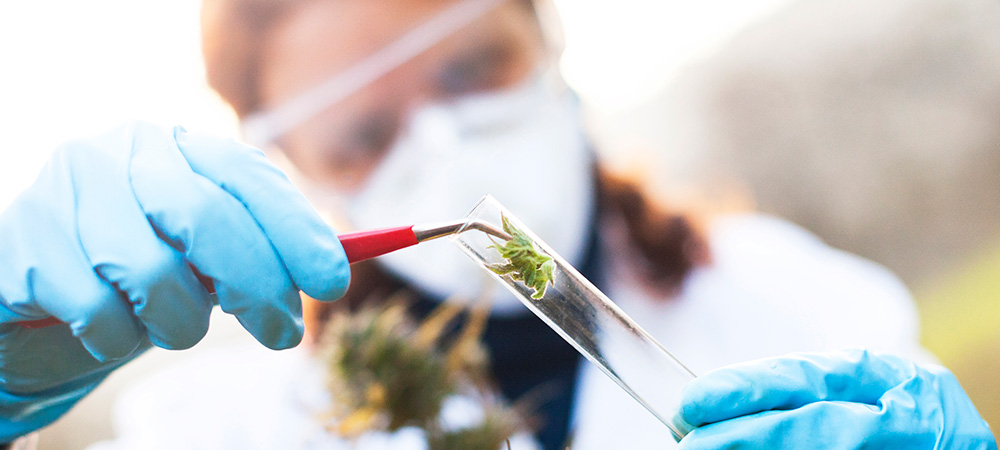Can Cannabis Help People Who Suffer From Migraines?
For those of us who regularly experience migraines, life carries unique challenges. Migraines are a recurring type of headache. They cause moderate to severe pain that is throbbing or pulsing. The pain is often on one side of your head. Some people may also experience other symptoms, such as nausea and weakness. Some may even be sensitive to light and sound.
According to the Migraine Research Foundation, Migraines are an extraordinarily prevalent neurological disease, affecting 39 million people in the U.S. and 1 billion worldwide.
Here are some of the main statistics published by the Foundation:
- Every 10 seconds, someone in the U.S. goes to the emergency room complaining of head pain, and approximately 1.2 million visits are for acute migraine attacks.
- While most sufferers experience attacks once or twice a month, more than 4 million people have chronic daily migraine, with at least 15 migraine days per month.
- More than 90% of sufferers are unable to work or function normally during their migraine.
Although drugs commonly prescribed for the prevention and treatment of migraines may help some individuals, they do not offer relief for all. Another problem is that a lot of these medications cause unwanted side effects. However, initial research seems to conclude that cannabis use may be an effective treatment for migraines and chronic headaches.
A research study published in the November 2019 issue of the Journal of Pain reported that cannabis could reduce migraine and headache severity by 50%, and that cannabis use does not exacerbate headaches or migraines over time.
While this appears to be a breakthrough for those who suffer from migraines, further research is still needed especially how much, and when to dose as well as what form and type of cannabis is most effective. Concentrates appeared to offer more significant relief than flower. Yet certain strains of cannabis may do better for some over other strains for others. This preference may be due to the potent analgesic, anti-inflammatory, and antiemetic properties of THC. With more research in this area, it is possible that cannabis use could be more prevalent and successful in treating people suffering from migraines.
Developments like this contradict the basis of classification of cannabis under Federal law which makes cannabis illegal.
The Anti-Federal U.S. Climate
The Federal Controlled Substances Act (“CSA”) 21 U.S.C. § 812 classifies marijuana as a Schedule 1 substance with a high potential for abuse, no currently accepted medical use in treatment, and lack of accepted safety for use under medical supervision. Although you can still face federal criminal charges for using, growing, or selling weed in a manner that is completely lawful under California law, the federal authorities in the past have pulled back from targeting individuals and businesses engaged in medical marijuana activities. This pull back came from Department of Justice (“DOJ”) Safe Harbor Guidelines issued in 2013 under what is known as the “Cole Memo”.
The Cole Memo included eight factors for prosecutors to look at in deciding whether to charge a medical marijuana business with violating the Federal law:
- Does the business allow minors to gain access to marijuana?
- Is revenue from the business funding criminal activities or gangs?
- Is the marijuana being diverted to other states?
- Is the legitimate medical marijuana business being used as a cover or pretext for the traffic of other drugs or other criminal enterprises?
- Are violence or firearms being used in the cultivation and distribution of marijuana?
- Does the business contribute to drugged driving or other adverse public health issues?
- Is marijuana being grown on public lands or in a way that jeopardizes the environment or public safety?
- Is marijuana being used on federal property?
Since 2013, these guidelines provided a level of certainty to the marijuana industry as to what point could you be crossing the line with the Federal government. But on January 4, 2018, Former Attorney General Jeff Sessions revoked the Cole Memo. Now U.S. Attorneys in the local offices throughout the country retain broad prosecutorial discretion as to whether to prosecute cannabis businesses under federal law even though the state that these businesses operate in have legalized some form of marijuana.
Joyce-Blumenauer Amendment (previously referred to as the Rohrabacher-Farr Amendment)
Medical marijuana is legal in 33 states.
The medical use of cannabis is legal (with a doctor’s recommendation) in 33 states and Washington DC. Those 33 states being Alaska, Arizona, Arkansas, California, Colorado, Connecticut, Delaware, Florida, Hawaii, Illinois, Maine, Louisiana, Maryland, Massachusetts, Michigan, Minnesota, Missouri, Montana, Nevada, New Hampshire, New Jersey, New Mexico, New York, North Dakota, Ohio, Oklahoma, Oregon, Pennsylvania, Rhode Island, Utah, Vermont, Washington and West Virginia. The medical use of cannabis is also legal in the territories of the Northern Mariana Islands, Guam and Puerto Rico.
Building on the DOJ’s issuance of the Cole Memo, in 2014 the House passed an amendment to the yearly federal appropriations bill that effectively shields medical marijuana businesses from federal prosecution. Proposed by Representatives Rohrabacher and Farr, the amendment forbids federal agencies to spend money on investigating and prosecuting medical marijuana-related activities in states where such activities are legal.
The amendment states that:
“None of the funds made available under this Act to the Department of Justice may be used, with respect to any of the States of Alabama, Alaska, Arizona, Arkansas, California, Colorado, Connecticut, Delaware, Florida, Georgia, Hawaii, Illinois, Indiana, Iowa, Kentucky, Louisiana, Maine, Maryland, Massachusetts, Michigan, Minnesota, Mississippi, Missouri, Montana, Nevada, New Hampshire, New Jersey, New Mexico, New York, North Carolina, North Dakota, Ohio, Oklahoma, Oregon, Pennsylvania, Rhode Island, South Carolina, Tennessee, Texas, Utah, Vermont, Virginia, Washington, West Virginia, Wisconsin, and Wyoming, or with respect to the District of Columbia, Guam, or Puerto Rico, to prevent any of them from implementing their own laws that authorize the use, distribution, possession, or cultivation of medical marijuana.”
This action by the House is not impacted by Sessions’ change of position with the DOJ. However, unless this amendment gets included in each succeeding federal appropriations bill, the protection from Federal prosecution of medical marijuana businesses will no longer be in place.
Fortunately for medical marijuana businesses in the last budget extension approved by Congress, this amendment was included. This means that the DOJ is precluded from spending funds to circumvent any of the foregoing states from implementing their medical cannabis laws.
Clearly, to avail yourself of the protections of the amendment, you must be on the medical cannabis side and you must be in complete compliance with your State’s medical cannabis laws and regulations. You may not be covered under the amendment if you are involved in the recreational cannabis side even if legal in the State you are operating.
What Should You Do?
Given the illegal status of cannabis under Federal law you need to protect yourself and your cannabis business from all challenges created by the U.S. government. Although cannabis is legal in California, that is not enough to protect you. Be proactive and engage an experienced Cannabis Tax Attorney in your area. Let the tax attorneys of the Law Offices Of Jeffrey B. Kahn, P.C. located in Orange County, Inland Empire (Ontario and Palm Springs) and other California locations protect you and maximize your net profits. Also, if you are involved in crypto currency, check out what a Bitcoin Tax Attorney can do for you.








